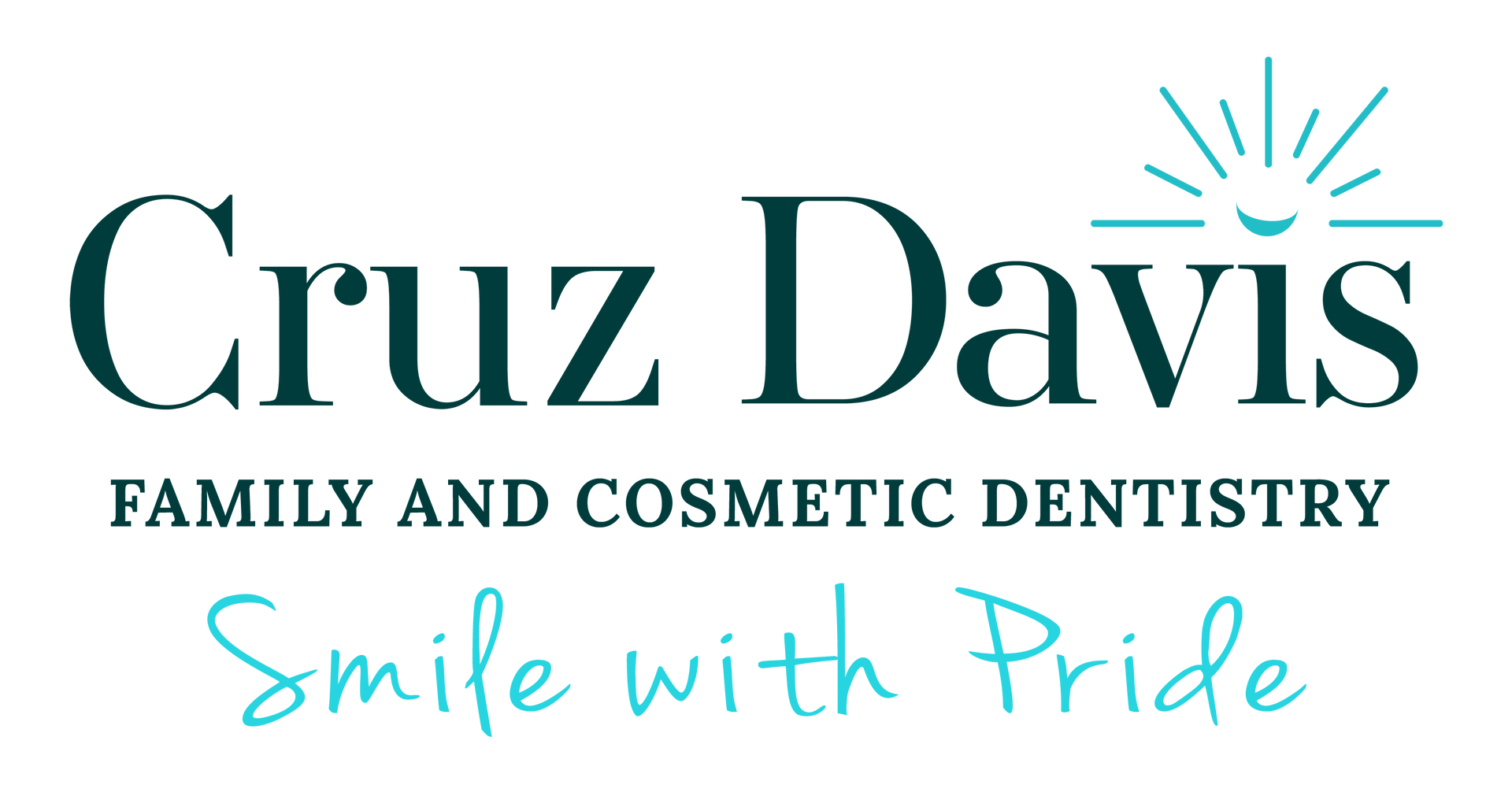Pediatric Dentistry
Calm, Comfortable & Caring Dentistry for Children
No one is more important than your child. Dr. Cruz Davis provides caring, compassionate, and detailed pediatric dentistry to ensure your child’s oral health is in good condition. Make an appointment to bring in your infant or toddler for a mini-exam and parent education session.
“I have been a patient of Dr. Cruz Davis since 2016. He and his staffs always cared about me and my family member. I would like to assure you even during the COVID-19 Pandemic outbreak, him and his office staffs are practicing a rigorous safety protocols to protect themselves and their patients.”
– Poorya S.
Building Healthy Habits with Children
The key to maintaining good oral health in your children is helping them develop main healthy oral habits. The top 5 healthy oral habits to teach children are:
- Keeping a healthy diet, too much sugar damages the teeth!
- Brushing teeth every day, at least two times a day
- Flossing at least once a day
- Remineralizing teeth with fluoride treatments.
- Coming to see Dr. Cruz-Davis two times a year for regular checkups and cleanings
First Dental Visit for Kids
Learn what to expect on your child’s first visit.
We look forward to caring for your and your child’s dental needs. Give us a call when you are ready to book your visit!
Dental Care for Children of All Ages
Your child’s well-being is your biggest concern, and their oral hygiene is an important part of their overall health. The care of your child’s teeth and gums begins with you, because you can set them on the right path for a lifetime of excellent oral hygiene.
Nutritional Counseling for Children and Caregivers
Through nutritional counseling, our Gainesville dental professionals will assess and manage risks related to nutrition for our child patients. We begin by performing an initial assessment that gauges the dietary factors contributing to disease or risk for diseases. By analyzing the child's dietary behaviors and diet, we can begin to pinpoint strategies for enhancing nutritional health.
Patient and parental counseling then commences. The patient will gradually improve their dietary knowledge and be better able to make prudent decisions regarding food and beverage consumption. Though making changes to consumption habits can be challenging, a gradual improvement in diet can significantly improve oral health.
Why Diet Matters in the Context of Oral Health - The nutrients in foods are important for the growth of tissue as well as for maintaining healthy tissue and repairing injured tissue. Nutritional counseling for children recognizes that diet contributes to health and disease.
Fluoride Treatment
Delivery of fluoride to the teeth in order to prevent tooth decay. Ask us about the ADA's current recommendations concerning fluoride treatments for children and adults.
Oral Hygiene Education
Establishing the Best Oral Hygiene Routine for Children
Here are some tips to help keep your child’s teeth healthy and strong starting at age 3:
- Use a pea-sized amount of fluoride toothpaste and make sure your child spits it out after brushing
- Be sure your child brushes for at least 2 minutes twice a day
- Start flossing as soon as teeth touch, or even earlier to help build good habits.
- Help your child brush and floss,and remind him or her to pay attention to the back teeth.
- Visit the dentist every 6 months.
Oral Hygiene for Children
Kids have all their baby teeth by the age of 3. These are called primary teeth. Baby teeth start falling out around age 6; that's when the permanent, or adult, teeth start coming in. Gaps between baby teeth are normal. They make room for the permanent teeth. Most permanent teeth come in by age 13.
Oral Hygiene for Preteens
As children grow older and more of their permanent teeth come in, a rigorous daily dental hygiene routine is crucial to keeping teeth and gums healthy. However, it can be difficult to keep preteens interested in their oral care.
Try These Tips to Keep Your Child on Track
- As preteens become more conscious of their appearance, it can be helpful to remind them that good oral care can help them look and feel better.
- Remind your child to brush twice a day with a fluoride toothpaste for a full two minutes which not only fights cavities and strengthens teeth, but also gives older kids the confidence of having fresh breath. A power toothbrush might make brushing more fun for preteens.
- Flossing is extremely important at this point as most permanent teeth have erupted and cleaning between them will help prevent cavities and keep their mouth fresh.
- Encourage children who play sports to wear a mouth guard to protect their teeth from injuries.
- Make sure kids who wear braces use a power brush and floss very thoroughly to avoid white spots on teeth when braces come off.
While we can agree that oral hygiene education should be a priority for families, children and caregivers oftentimes have gaps in oral hygiene knowledge. As your Gainesville dental professionals, we would love to help education the family on oral hygiene to help educate the children and the families on healthy and unhealthy eating habits, which foods contain sugars, and tips on maintaining optimal oral health and a healthy overall lifestyle.
Sealants
Sealants give your teeth extra protection against decay and help prevent cavities. Dental sealants are made from resins that bond and harden in the deep grooves on your tooth’s surface. When a tooth is sealed, the tiny grooves become smooth and are less likely to harbor plaque. With sealants, brushing your teeth becomes easier and more effective against tooth decay.
Sealants are typically applied to children’s teeth as a preventive measure against tooth decay after the permanent teeth have erupted. However, adults can also receive sealants on healthy teeth. It is more common to seal “permanent” teeth rather than “baby” teeth, but every patient has unique needs, and your dentist will recommend sealants on a case-by-case basis.









